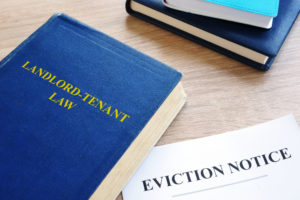
Here is a story going around the property management industry.
The local police went to a rental property community in Alabama last August to effect the eviction of three squatters as ordered by the court. However, they discovered some evidence of massive theft and fraud operation in the area.
Three men created a phony rental lease which they used to move into one of the luxury homes in the area and amassed Social Security cards, driver’s licenses, bank accounts and other counterfeit materials with 101 different names. According to reports, the community had been trying to evict them for more than a year.
Read More: How To Do a Philadelphia Eviction Of A Tenant
Though the FBI and Department of Homeland Security don’t typically get involved in eviction, trying to evict squatters can be quite frustrating. For example, in New York City, a rental property squatter that has resided in a unit for more than 30 days is legally allowed to remain in that unit until the owner succeeds in evicting him in an expensive and lengthy legal process.
As the owner of a property management company, here in Philadelphia, I have property owners contacting us for help with similar stories, and they often come with them, very difficult, sometimes devastating financial woes for the property owners.
Often we are able to unravel these situations and get the properties profitable again. But nothing beats avoidance to the problem altogether.
Here are five tips that can help you prevent squatters from even moving in:
- Get acquainted with your area’s eviction and adverse possession laws, including the limit to the authority of your HOA, since the homes are not owned by your association.
- Know the unoccupied homes in your neighborhood, whether they’re up for sale or being foreclosed, or if the owner resides elsewhere for a huge chunk of the year.
- Secure the unoccupied homes and make sure they don’t appear vacant to an outsider.
- Maintain up-to-date contact information of every owner.
- Recruit next-door neighbors to be on the watch out just to ensure that the people going out and coming in are authorized to do so.
Lastly, you might want to consider employing the services of a property manager to help maintain the safety and appearance of your community and to give your board solid advice on how to act in sticky situations.






